SIBIU FOR METEOR BELIEFS PROJECT
or
COMMEMORATING LUCIAN BLAGA
FOR HIS COSMIC POETRY
-by Andrei Dorian Gheorghe and Alastair McBeath (UK,
Meteor Section Director to Britain’s Society for Popular Astronomy)-
*
CLEAR SKIES OVER SIBIU
DURING THE INTERNATIONAL METEOR CONFERENCE 2011
(1.Sunset over Sibiu;
2.Moon over Sibiu;
3.Moon and Jupiter over the Great Square)
-photographic poem by Andrei Matache-
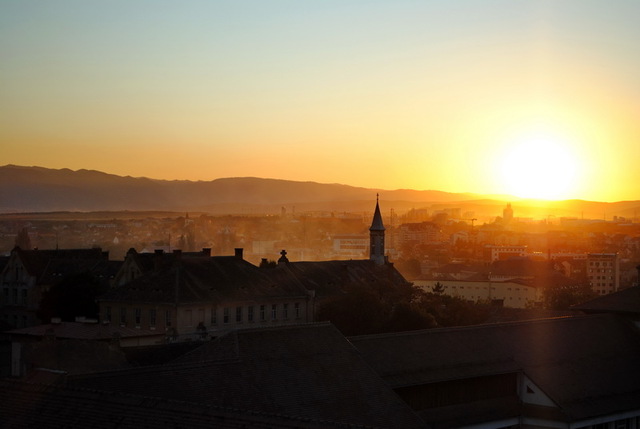
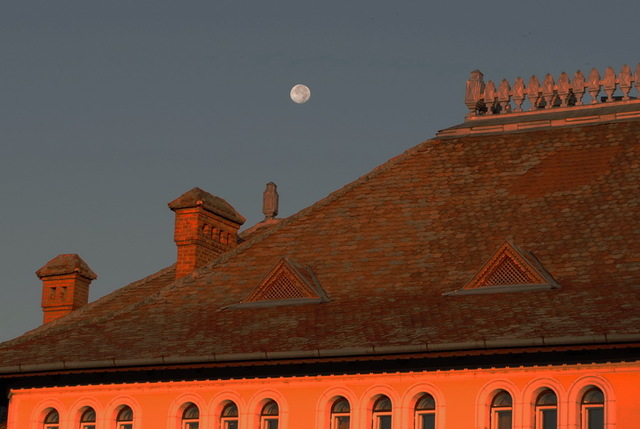
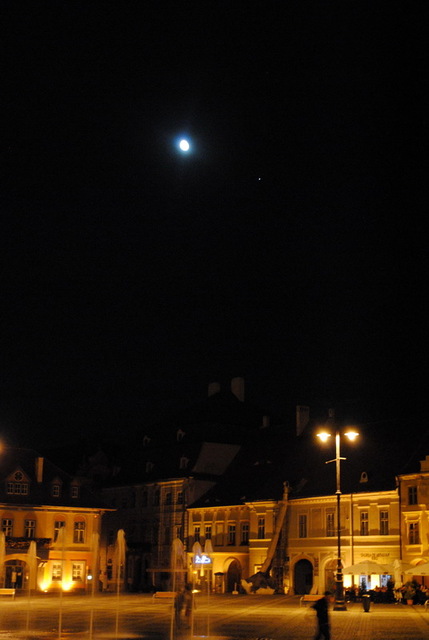
Although initiated in 2002,
the Meteor Beliefs Project did not, till now, include
a theme from a locality that held an International Meteor Conference.
This time the city of Sibiu in Romania, host of the IMC 2011,
can serve the MBP
for an experimental and shorter issue due to Lucian Blaga,
the most complex Romanian literary personality
(poet, writer, journalist, playwright, translator, philosopher,
professor, academician and diplomat)
in the XXth century.
Lucian Blaga was born in 1895 in the Sibiu district
(which then belonged to the Habsburg Empire)
and was a professor at the University of Sibiu during World War II,
before persecution by the communist regime
installed in Romania from 1945-1947, which,
because he did not accept the Marxist doctrine at his department of philosophy,
hurried his death in 1961.
In spite of those persecutions in his own country,
Lucian Blaga was proposed in 1956 for the Nobel Prize
by men of letters from France and Italy.
In his honour
today the University of Sibiu is named after him.
ANDREI DORIAN GHEORGHE AND GELU CLAUDIU RADU
PRESENTING THIS ESSAY ON SEPTEMBER 15
AT THE CONFERENCE HALL OF CONTINENTAL FORUM HOTEL IN SIBIU
IN THE OPENING OF THE FREE PODIUM EVENING
AT THE INTERNATIONAL METEOR CONFERENCE 2011
-photo by Valentin Grigore-
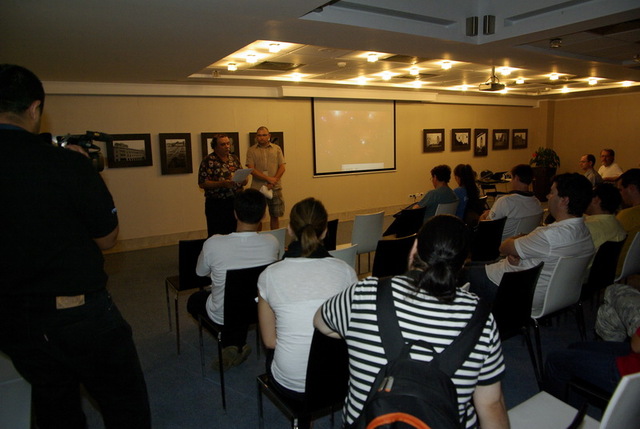
In 1919, soon after the end of World War I
and the inclusion of Sibiu in Romania’s territory,
Lucian Blaga published in this city his first booklet,
The Poems of Light,
which remained for many the most beautiful Romanian book of poetry
in the 20th century.
In some of the verses from this book,
Blaga presents personal visions about the fascination of the Cosmos.
Thus, he refers to sunrise:
“The sun rises and washes in the sea his javelins
used to kill in a hurry the night
like a beast…”
(At seaside)
…he praises our star of life:
“Immensity kisses my front,
and in my chest
I drink my strong belief
from the sun…”
(But where are the mountains?)
…he refers to sunset:
“A burning wind in the evening
kisses the sky to the west
and rouges bloodily his cheeks…”
(Buds)
…he praises the night sky:
“I bathe my look in the canopy of heaven
and I know I also carry in my soul
a lot of stars and milky ways,
the wonders of the darkness…”
(I wait for my twilight)
…he admires the Earth’s satellite:
“…with her white beams the moon
does not dim, but heavily increases, trembling,
the mystery of the night…”
(I do not crush the world’s corolla of wonders)
…he is grateful to the stars:
“With an ocean of impulses and blind aspirations
in myself
I prey to your light, stars
and flames of adoration
burn in my eyes
as candles of sacrifice.”
(You stars)
…and he metaphorically describes a meteor shower:
“So many stars fall in this night.
It seems that the demon of the night keeps the Earth in his hands
and blows sparkles towards it like towards a tinder,
impetuously to burn it.”
(Us and the Earth)
Since in these verses the poet suggests a warm weather,
we can suppose that he describes the remembrance of a
summer meteor shower, most probably the August Perseids,
which he had seen in his native village (and his favourite place for vacations),
Lancram.
A reason for us to commemorate at the IMC 2011
50 years since the passing of Lucian Blaga.
PERSEIDS 2011 OVER ROMANIA
-photo by Vlad Dumitrescu-
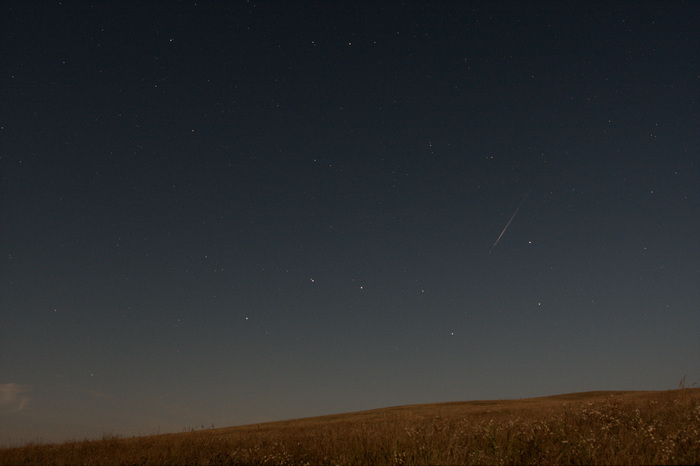
HOME NEXT